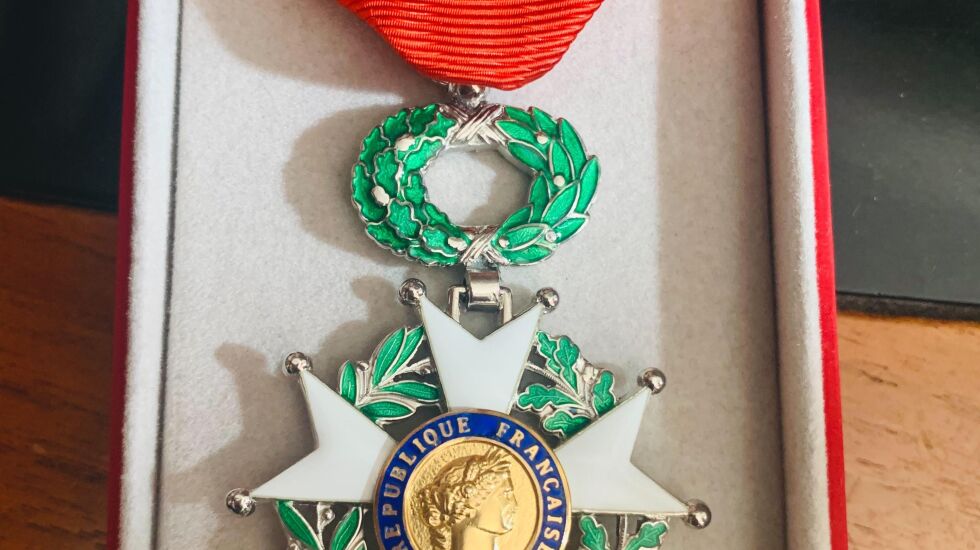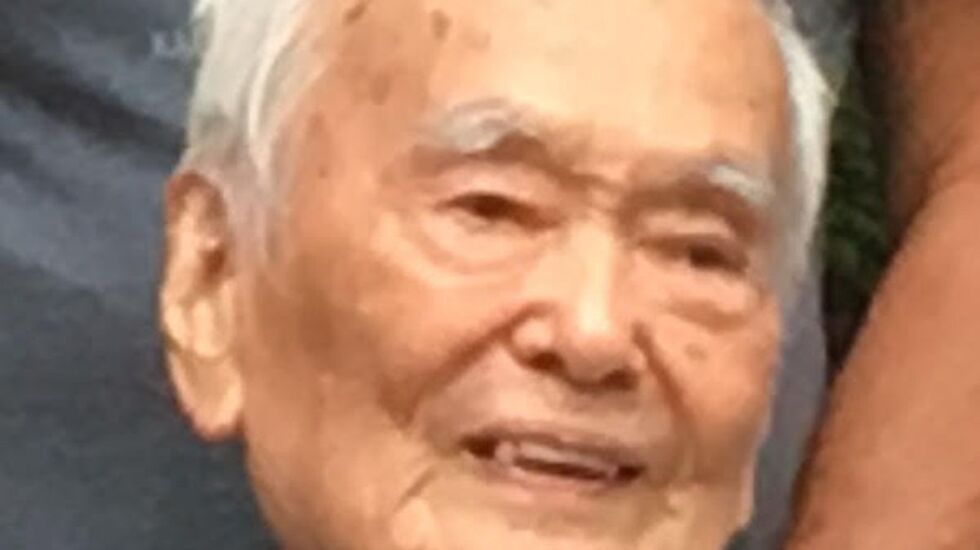
When French Consul General Yannick Tagand arrived in Rogers Park at the home of Hiroshi “Johnny” Okura, he found the World War II veteran confined to bed.
Tagand had come that day in October 2021 to present Mr. Okura with France’s Legion of Honor, the nation’s highest accolade.
“These ceremonies are very moving,” the consul general said, “honoring someone who has dedicated his youth to fighting for the French ideals of liberté, égalité, fraternité.”
“It’s what I had to do,” Mr. Okura told him.
“I offered him a bottle of French champagne,” Tagand said, “and he got a glass.”
“They came with flags, and they played the French anthem and presented the medal to him,” Mr. Okura’s son Terry Okura said, “and then opened a bottle of champagne, and we all drank.”
Mr. Okura, who was 100 years old when he died in August, was one of a dwindling number of members of the U.S. Army’s 442nd Regimental Combat Team, composed of Japanese American GIs who served in what the National WWII Museum calls “the most decorated unit for its size and length of service in the history of the U.S. military.”
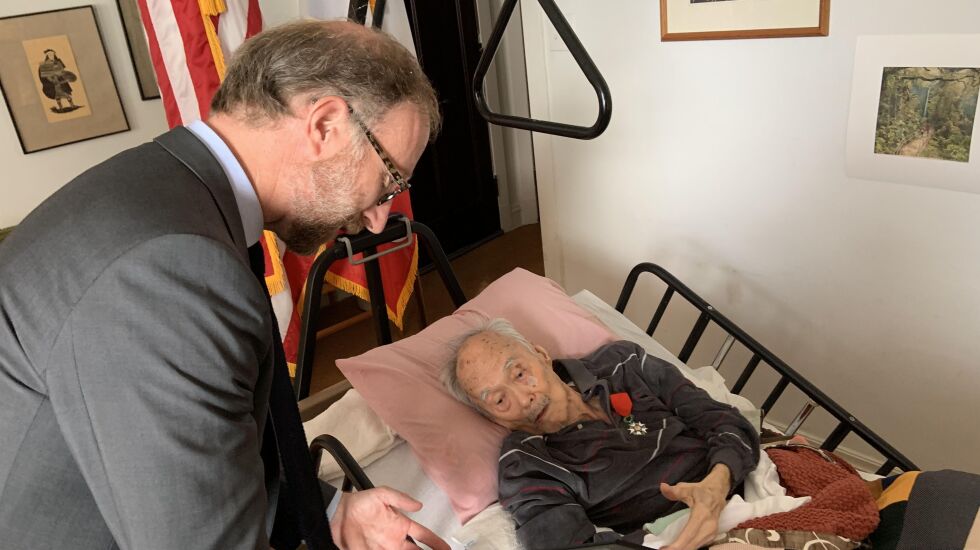
President Harry S Truman saluted its soldiers after the war, telling them: “You fought not only the enemy but prejudice, and you won.”
In 2010, Congress recognized the 442nd by awarding its men the Congressional Gold Medal.
Mr. Okura served as a field lineman in France, Italy and Germany with the combat team’s 522nd Field Artillery Battalion, laying wires so soldiers could communicate in battle. He also scouted “for enemy activity and targets in advance of assault infantry,” according to Jeff Morita, a retired Army sergeant and member of the Japanese American Veterans Association.
The 522nd “helped cross the Rhine River into Germany,” Morita said. “The 522nd was the only Nisei” — the first generation of Japanese descent born in the United States — “unit to have fought on German soil,” Morita said.
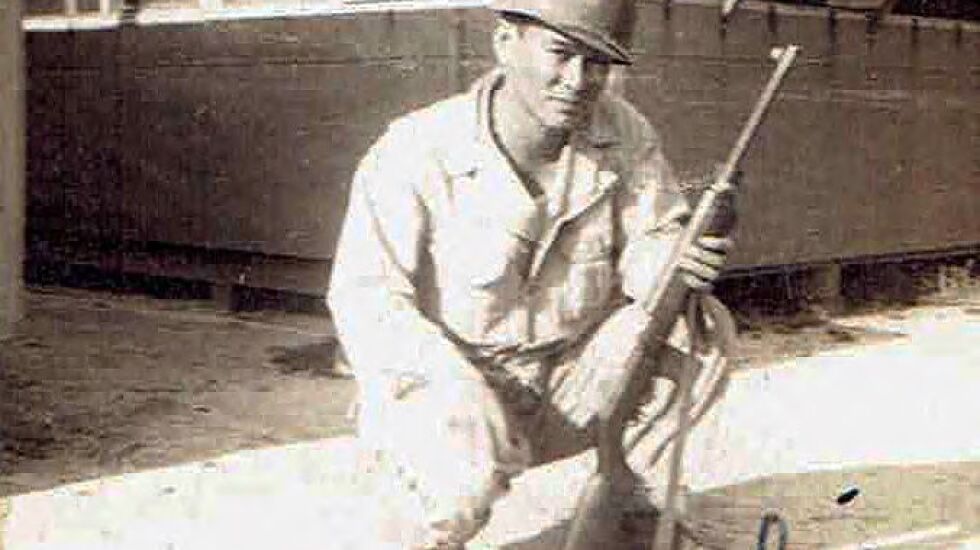
Mr. Okura was wounded in battle, struck by shrapnel near the German-held town of Bruyères in France.
Another time, he got mad at a foxhole mate who made a sarcastic comment about the artillery. When he stood to argue, “A German sniper’s bullet buzzed by Pvt. Okura’s helmet and right ear,” Morita said in documents he filed with the French government to help Mr. Okura receive the Legion of Honor.
“The French never forget what the Nisei did,” he said. “They were helping to liberate the country.”
The 442nd also helped rescue the “Lost Battalion.” The Nisei soldiers suffered heavy casualties as they succeeded in liberating about 200 soldiers from a Texas National Guard unit surrounded by German forces in the Vosges Forest of France.
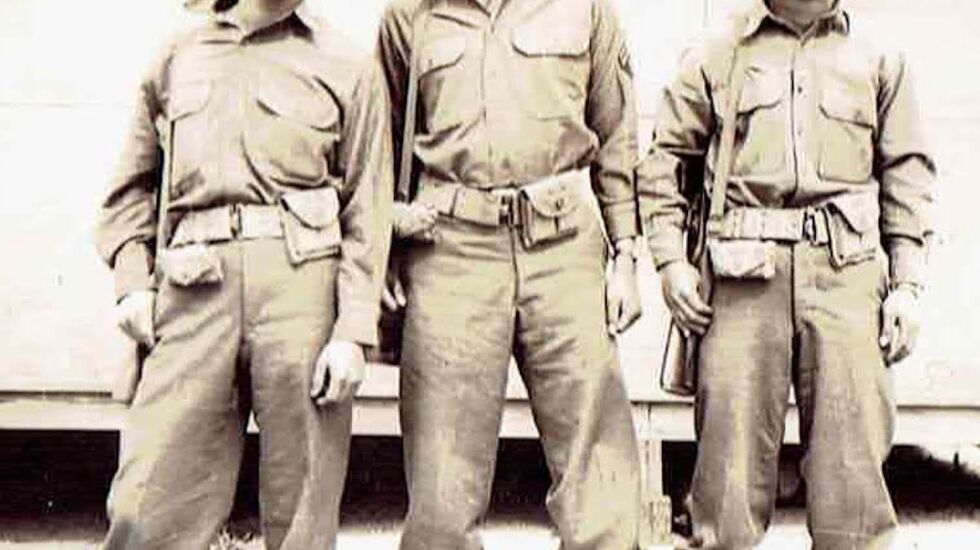
Mr. Okura always kept a cool head, his family said — even as he witnessed the attack on Pearl Harbor.
He grew up in Honomu on the “Big Island” of Hawaii in a family of four brothers and two sisters. His parents Miyo and Kanta Okura were from Kumamoto Prefecture on the island of Kyushu, Japan.
After graduating in 1940 from Hilo High School, he moved to the island of Oahu, where he worked construction at Pearl Harbor. He wanted to get away from the back-breaking, low-paying work he’d been doing on sugar cane and pineapple plantations.
“He called it slave labor,” his son said.
On Dec. 7, 1941, Mr. Okura “remembered a plane flying over and dropping a bomb, and he ran and ducked under a truck,” his son said. “The next day, when they came back to work, all the Japanese were rounded up at gunpoint by MPs and escorted to the gate of the base and told to run. They took off running. I think they [the MPs] were afraid and suspicious.”
“My grandfather thought he was going to be shot,” his granddaughter Lauren Okura said.
He decided to enlist because “he didn’t see a future in Hawaii,” his son said. “The service was his way out.” Young “Johnny” trained at Camp Shelby in Mississippi. “He said it was terrible how they treated the Black people down there.”
In Italy, “They bivouacked around the Coliseum, so, when my dad saw pictures of the Coliseum, he said, ‘I christened that,’ ” his son said. “He said every time they came to a new town in Italy, the first words out of their mouth were: ‘Dov’è il vino,’ meaning, ‘Where’s the wine?’ ”
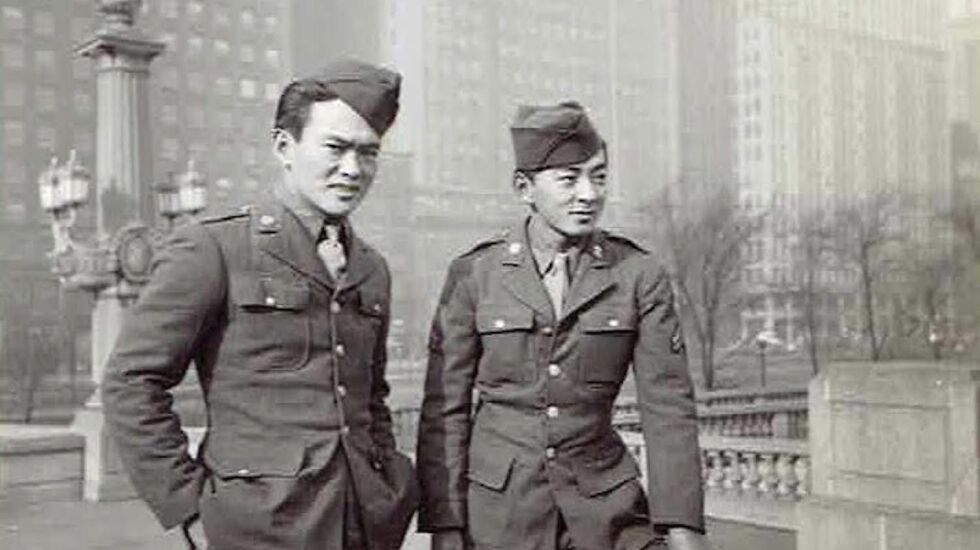
After the war, he married Toshiko “Daisy” Tomiyama, who was born on a sugar plantation on the island of Hawaii. They moved to Chicago, which Mr. Okura had enjoyed visiting while on furlough.
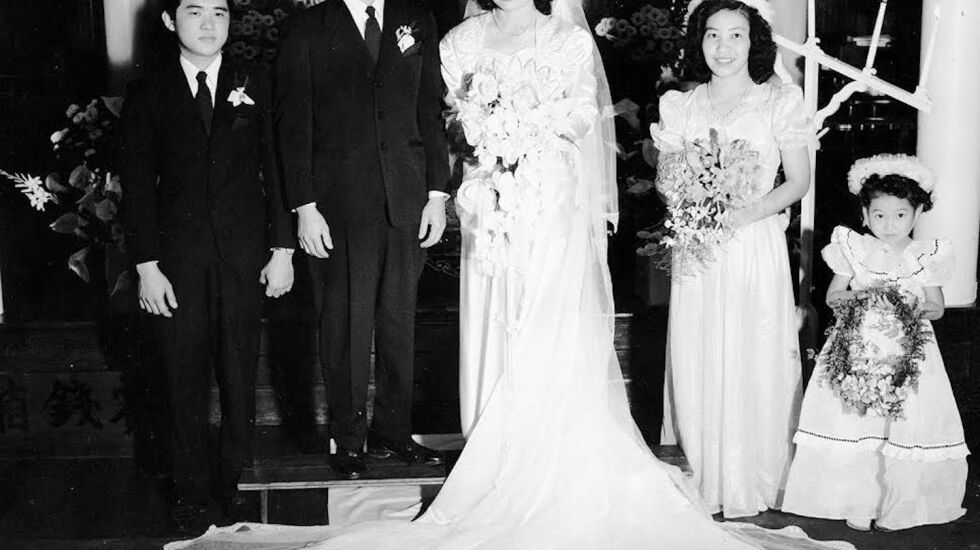
Mr. Okura used the GI Bill to study art at the Ray-Vogue School, became a commercial artist and worked in advertising and production for companies including Leo Burnett and Ficho & Corley.
His wife was a founder of a performing troupe, the Na Kupuna Ukelele Club of Chicago, for which he lent a hand.
“My grandpa did all the artwork,” Lauren Okura said. “He hand-drew a lot of the signs and decorations they would put up at their events.”
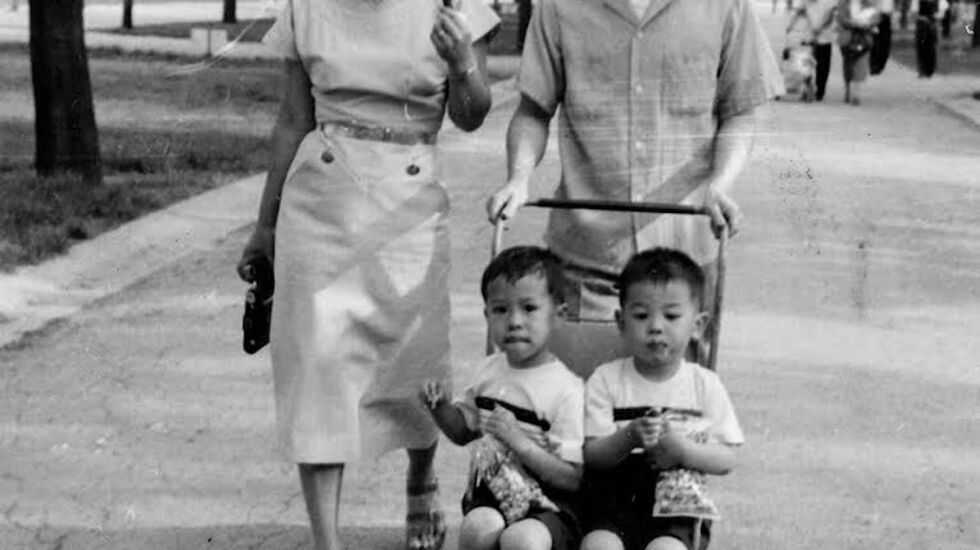
Another son, Gerald, developed kidney trouble as a result of a childhood bout with strep throat. In 1969, Mr. Okura donated a kidney to his then-20-year-old son.
“That was a big event in all our lives,” Terry Okura said. “In 1969, the transplants were fairly new.”
Gerald Okura lived nearly 30 more years. He died in 1997 at 46.
Mr. Okura was impatient around complainers.
“He’d say, ‘If you don’t like it, do something about it,’ ” his son said. “He didn’t like Hawaii — so he joined the Army. After that, he didn’t want to go back to Hawaii — so he moved to Chicago.”
Mr. Okura taught his grandchildren to play card games with Hanafuda — Japanese “flower cards” depicting different seasons and flowers. He used to try his luck at the Rivers Casino and at the racetrack. Mr. Okura also enjoyed visiting a newsstand where the vendor doubled as a bookie.
“The motto of the 442nd was ‘Go for broke,’ ” his son said. “The good thing is he never went broke.”
Mr. Okura liked room-temperature beer and fishing for panfish like perch, crappie and bluegill.
His wife died in 2016. In addition to his son Terry and granddaughter Lauren, he is survived by another granddaughter, Lynn Okura Bey, and four great-grandchildren.
Mr. Okura didn’t want a funeral service, but his family — using a phrase often heard in Hawaii — said they’ll remember him when they get together and “talk story.”
His son sent some of his ashes to Hawaii, where Mr. Okura’s cousins scattered them in the waters off Waikiki Beach and at the graves of his parents.
